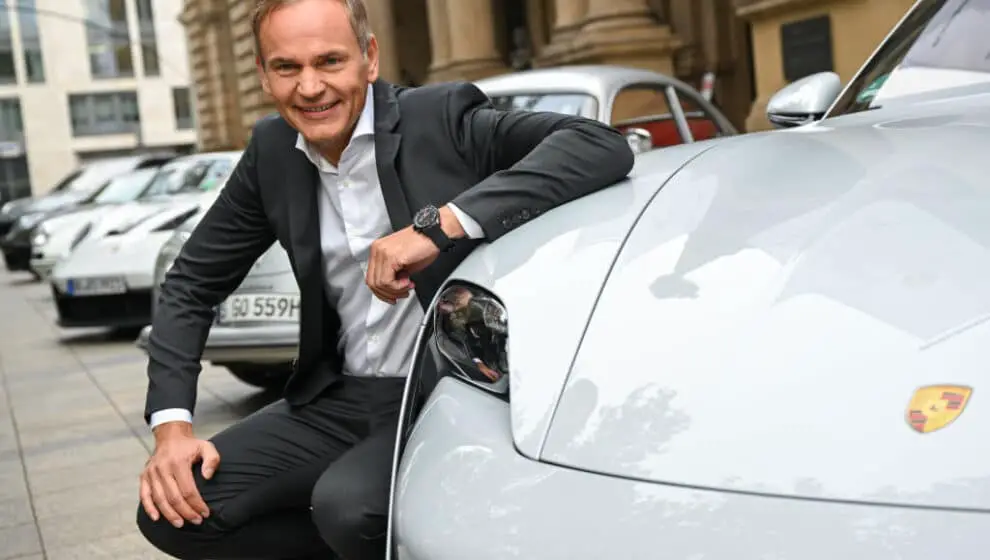Porsche’s stock rose to a new high on Thursday—making it the most valued car company in Europe.
Key Details
- Porsche Automobile Holdings SE is now the most valuable automaker in Europe—surpassing its parent company Volkswagen AG.
- It is also the fifth most valuable German company behind Linde, SAP, Deutsche Telekom, and Siemens, Reuters reports.
- “Although Porsche shares had fallen below its listing price on Monday to 81 euros ($78.82), in line with a wider fall in markets, they rose to 93 euros ($91.95) earlier on Thursday, giving the sportscar brand a market valuation of 85 billion euros ($82.72 billion),” says Reuters.
- Just a week after being publicly listed at 82.50 euros ($80.28), the price increased in Frankfurt to make it one of the most valuable companies in Europe.
- Porsche’s current valuation is 85 billion euros ($82.72 billion), with Volkswagen at 77.7 billion euros ($75.61 billion). Mercedes Benz Group AG remains the third highest at 57.2 billion euros ($55.66 billion).
Why it’s important
Porsche’s IPO and public stock trading have wildly outperformed expectations.
As we previously reported, Germany’s most famous luxury car manufacturer made stock market history last week when it marked the second biggest debut on the Frankfurt stock market at 75 billion euros ($72 billion) last Thursday.
Now the company’s valuation has skyrocketed the brand, outshining its parent company.
Backing up a bit
Porsche opened its IPO from September 22 to 28, selling just 12.5% of its newly generated total non-voting shares to the public and retaining a controlling interest. It reaped 9.4 billion euros in proceeds and eclipsed their expectations for an IPO in a down market.
The increased capital for Volkswagen and Porsche will be used in the company’s transition towards more low-emissions vehicles and self-driving cars.
The sale also returns a minor portion of the company back to the Porsche family—returning those members to the supervisory board. The Porsche family will have a 25% share in the company, giving it greater control than it has had in more than a decade and allowing them some strategic decision-making capacities.
